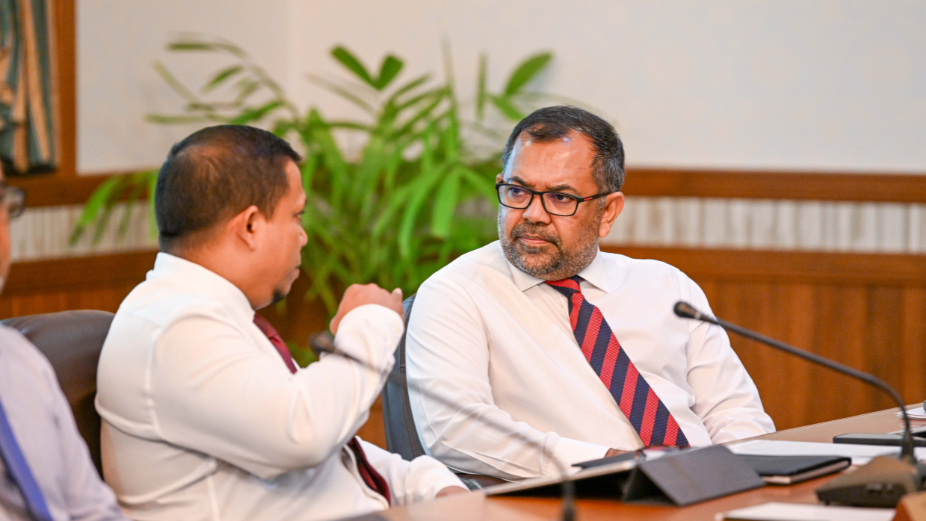
Foreign Minister Moosa Zameer has asserted that the economic and financial difficulties facing the Maldives are temporary, emphasising that friendly nations are providing assistance to help overcome these challenges. However, a closer look at the current economic realities presents a more complex and troubling picture.
During an interview on state media’s “Raajje Miadhu” programme, Minister Zameer discussed President Dr Mohamed Muizzu’s foreign policies and highlighted the global community’s support for the government’s reform agenda aimed at addressing the country’s economic issues. He cited recent engagements with China and India, noting China giving the green signal to defer loan repayments for the next five years and India’s deferral of USD 50 million in debt.
Contrary to this optimistic outlook, Fitch Ratings recently downgraded the Maldives’ Long-Term Foreign Currency Issuer Default Rating from ‘B-’ to ‘CCC+’, reflecting heightened concerns about the country’s external financing and liquidity. This downgrade showed significant challenges in managing the Maldives’ substantial debt, which ballooned to USD 8 billion, or 122.9 percent of GDP, in 2023.
The Maldivian government faces the daunting task of securing over USD 500 million annually to service debt in 2024 and 2025, with this requirement rising to a staggering USD 1.07 billion by 2026. This financial burden is exacerbated by gross foreign currency reserves that stood at only USD 492 million in May, with usable reserves barely sufficient to cover a month of imports and necessary expenses.
While the government has announced austerity measures, including reducing political posts and cutting expenses on official functions, these actions appear insufficient given the scale of the crisis. The administration has also continued to add to the already substantial number of political appointees, a move that contradicts the austerity narrative and suggests a lack of concrete measures to mitigate the looming economic crisis.
The World Bank and the International Monetary Fund (IMF) have flagged a high risk of debt distress for the Maldives, urging comprehensive fiscal reforms. The economic vulnerabilities are a result of years of unsustainable borrowing and persistent high fiscal deficits, worsened by the COVID-19 pandemic and extensive infrastructure projects funded by loans from China and India .
Despite diplomatic efforts and deferred loans providing some temporary relief, the overall economic outlook remains precarious. The successful implementation of fiscal reforms and the ability to attract foreign investment will be crucial for stabilising the economy and improving the Maldives’ financial health. Without substantial and effective measures, the government’s optimistic assurances may fall short of addressing the deep-rooted economic challenges facing the nation.











